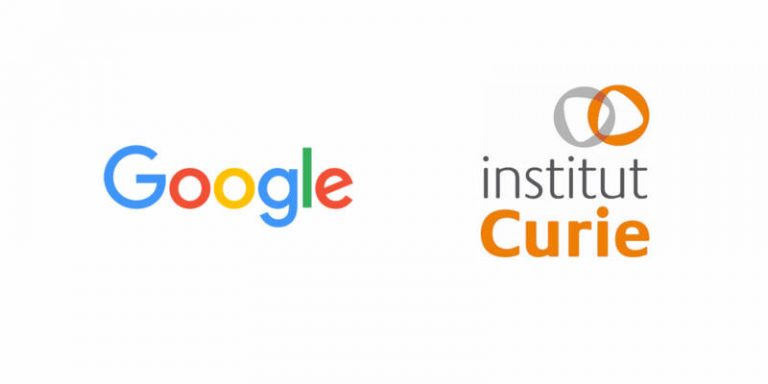
The Institut Curie and Google announced on Thursday 10 December the launch of a joint research programme on artificial intelligence (AI). They will work together to develop and implement deep learning methods for the analysis of complex transcriptomic and epigenetic data in single cells. Obtained from cell lines and tissue samples from mice, these data sets will be used to develop new deep learning algorithms. In the long term, this research project could help characterize tumour heterogeneity and predict resistance to treatment.
The emergence of new personalized medicine including targeted therapies is a major challenge for cancer treatment. Genetic heterogeneity within tumors is a key determinant of response and resistance to treatment; a subpopulation of cells carrying a resistance-transmitting mutation can survive and be selected through a Darwinian process.
Amaury Martin, Director of Valorization and Industrial Partnerships & Director of the Carnot Curie Cancer Institute says :
“The Institut Curie is very pleased to be the first research center selected by Google Research for a partnership of this nature. It reinforces our commitment to play a major role in the development of artificial intelligence approaches applied to the life sciences”.
In addition, epigenetic mechanisms are expected to play a role in the adaptation of cancer cells to environmental, metabolic and therapeutic stresses. The last decade has seen the development of new methods for the analysis of tumour cells at a granularity unthinkable a few years ago, but the analysis of these complex data remains a challenge.
At the forefront of innovation, the Dynamics of Epigenetic Plasticity in Cancer team at the Institut Curie (UMR3244 – Institut Curie, CNRS, Sorbonne University) – led by Céline Vallot, PhD – and Google Lab – under the direction of Jean-Philippe Vert, PhD – are initiating a pioneering collaboration to address the current challenges of single cell data analysis.
“We are delighted to collaborate with Céline Vallot and her team at the Institut Curie on this ambitious and multidisciplinary project. The combination of the latest technologies in cancer genomics and machine learning poses a number of challenges that we will take up together, and should ultimately lead to a better understanding of the disease and how to treat it,” says Jean-Philippe Vert, researcher at Google Research – Brain team.
As part of this partnership, the Institut Curie and Google will combine their expertise in single cells and deep learning to develop innovative approaches at the frontier between data science and biology. More specifically, the expertise of Céline Vallot and her team will make it possible to generate scChIP-seq1 data obtained from cell lines and tissue samples from mice. These valuable data sets will be analyzed and used by the Google team to develop new deep learning algorithms in collaboration with Céline Vallot’s team.
The purpose of this collaboration? The use of deep learning approaches to study single cell epigenomic and transcriptomic data in cancer, in order to characterize tumor heterogeneity and ultimately predict treatment resistance. This project aims to deepen the structure of deep learning algorithms to extract information and interpret these components at the biological level.
“Together, our goal is to leverage data science to shed light on new mechanisms of tumor evolution,” adds Celine Vallot, head of the Dynamics of Epigenetic Plasticity in Cancer team at the Institut Curie.
Translated from L’Institut Curie et Google signent un partenariat autour de l’IA pour l’analyse de données transcriptomiques et épigénétiques complexes









